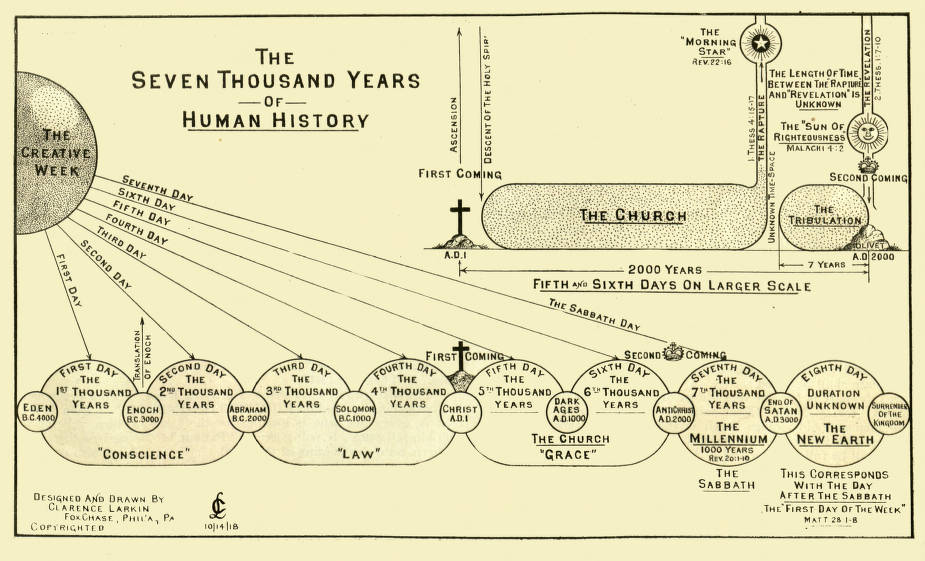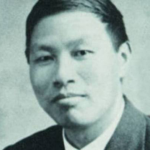As we approach Jesus Second Coming, many people have come to believe dispensational theology which I will attempt to show is at odds with Jesus’ own words and the New Covenant in general. This is part 2. You can read part 1 by clicking here.
The covenantal view, which I believe better agrees with scripture, holds that throughout history God has made promises or covenants with mankind, beginning in the Garden of Eden after Adam’s sin. There he promised to send a Messiah who would crush Satan (Genesis 3:15). God expanded this promise when he covenanted with Abraham that one of his descendants would be blessing to the entire earth (Genesis 22:18). The Abrahamic covenant made it clear that the blessing was not to be restricted to Israel. To David God promised that one of his descendants would rule God’s kingdom forever (2 Samuel 7:12-13). We now see through the lens of hindsight that Jesus perfectly fulfilled these promises, as the first apostles taught (Acts 2:30-32, Acts 3:25).
The New Covenant fulfilled and extended all the previous covenants, except for the Mosaic Law, which it fulfilled and subsequently abolished (Ephesians 2:15)
Much to the surprise of the early Jewish Christians, the New Covenant includes both Jews and Gentiles. The Body of Christ, which Paul calls “one new man,” is made up of all people who confess allegiance to Jesus the Lord (Colossians 1:26-27).
The New Testament makes it clear that Israel is now defined as those who are born again by the Spirit of God.
There is no distinction any longer between Jew and Gentile, male and female, free and slave, rich and poor, young and old, etc. We are all one in Christ.
There is neither Jew nor Greek, there is neither slave nor free man, there is neither male nor female; for you are all one in Christ Jesus. 29 And if you belong to Christ, then you are Abraham’s descendants, heirs according to promise. Galatians 3:28–29 (NASB95)
The above passage in itself destroys dispensationalism. It also brings into question whether the current nation of Israel has any connection whatsoever with the kingdom of God.
Everything in the Bible and God’s historical interactions with people points to Jesus. God’s plan culminates in our Lord, who will have first place in all things.
He is also head of the body, the church; and He is the beginning, the firstborn from the dead, so that He Himself will come to have first place in everything. Colossians 1:18 (NASB95)
The old covenant patterns and types all pointed to Christ. The feasts of Israel point to Christ, who either has or will perfectly fulfill them. (Click here to read more about the feasts.) The sacrifices under the old covenant all pointed to Christ’s perfect sacrifice of himself as God’s Lamb. (Click here to read more about sacrifices.) The Law pointed to Christ in that it showed us how much we need a savior. However, once Christ, the perfect fulfillment of the old covenant patterns and promises arrived, the old covenant faded away.
When He said, “A new covenant,” He has made the first obsolete. But whatever is becoming obsolete and growing old is ready to disappear. Hebrews 8:13 (NASB95)
Once a person, nation, or institution fulfills its purpose in introducing our Lord, it is fitting for it to move out of the picture so Christ will be have first place.
This was true in the case of John the Baptist, who receded into the background once he introduced Jesus.
“He who has the bride is the bridegroom; but the friend of the bridegroom, who stands and hears him, rejoices greatly because of the bridegroom’s voice. So this joy of mine has been made full. 30 “He must increase, but I must decrease. 31 “He who comes from above is above all, he who is of the earth is from the earth and speaks of the earth. He who comes from heaven is above all. John 3:29–31 (NASB95)
This was also the case with the Law of Moses. It’s purpose was to define what is righteous and to lead us to Christ. Once it fulfills its purpose, it no longer has the forefront.
Therefore the Law has become our tutor to lead us to Christ, so that we may be justified by faith. 25 But now that faith has come, we are no longer under a tutor. Galatians 3:24–25 (NASB95)
The destruction of Jerusalem by the Roman army was a giant exclamation point stamped on God’s judgment and rejection of the Jewish nation for its absolute refusal to recognize and come under the lordship of their Messiah, Jesus.
Jesus warned that this would take place.
“But afterward he sent his son to them, saying, ‘They will respect my son.’ 38 “But when the vine-growers saw the son, they said among themselves, ‘This is the heir; come, let us kill him and seize his inheritance.’ 39 “They took him, and threw him out of the vineyard and killed him. 40 “Therefore when the owner of the vineyard comes, what will he do to those vine-growers?” 41 They said to Him, “He will bring those wretches to a wretched end, and will rent out the vineyard to other vine-growers who will pay him the proceeds at the proper seasons.” Matthew 21:37–41 (NASB95) “But the king was enraged, and he sent his armies and destroyed those murderers and set their city on fire. Matthew 22:7 (NASB95) “What will the owner of the vineyard do? He will come and destroy the vine-growers, and will give the vineyard to others. Mark 12:9 (NASB95)
The early church clearly understood that the destruction of Jerusalem and the Temple was Jesus’ vindication. God punished those who rejected their Messiah and handed the kingdom of God over to another “nation” or people that would produce fruit for him.
“Therefore I say to you, the kingdom of God will be taken away from you and given to a people, producing the fruit of it. 44 “And he who falls on this stone will be broken to pieces; but on whomever it falls, it will scatter him like dust.” 45 When the chief priests and the Pharisees heard His parables, they understood that He was speaking about them. Matthew 21:43–45 (NASB95)
That other nation or people is the church, which is composed of both Jews and Gentiles, all who have believed the gospel and been born again into God’s kingdom.
But you are A CHOSEN RACE, A royal PRIESTHOOD, A HOLY NATION, A PEOPLE FOR God’s OWN POSSESSION, so that you may proclaim the excellencies of Him who has called you out of darkness into His marvelous light; 1 Peter 2:9 (NASB95)
The royal priesthood of the New Covenant offers spiritual sacrifices of praise and obedience to God, rather than the now defunct animal sacrifices. Animal sacrifices were never able to provide forgiveness for sins (Hebrews 10:4). They were always only a picture of the sacrifice that Jesus would make at Calvary as God’s Lamb, who took away the sin of the world (John 1:29).
Now that the perfect has come, the old order of things has become a stench in God’s nostrils because holding on to it represents rebellion and rejection of the New Covenant.
This is why legalism is so deadly. Whenever we try to blend old covenant forms with new covenant grace, we create a hybrid that is something foreign to God. Therefore, to rebuild the Temple and re-institute animal sacrifices would continue the Jew’s rebellion against God and their rejection of his Messiah.
In fact, it can be argued that the present day existence of the nation of Israel is a direct affront to God because it represents their defiance of his judgment against them.
As Jesus prophesied, God destroyed that nation in 70 AD, but Zionists, who are not dedicated to the God of the Old Testament and certainly not to Jesus, have rebuilt it with the help of wealthy bankers, England, and other nations. It is not as if the Jewish people as a whole have ever shown any trace of repentance and faith toward Jesus. Only a relatively small number of those whom God chose before the foundation of the world have turned to Christ. Most people who populate Israel and call themselves Jews are basically secular, having no interest in Jesus at all, except in a negative way.
The whole idea of Christians backing the reestablishment and defense of the nation of Israel is derived from Dispensationalism, which argues that it is our moral duty to support secular Israel, no matter what, on pains of incurring God’s judgment if we fail to do so. Such a threat of being cursed by God is antithetical to the New Covenant. Our loyalty is to Jesus, not the nation of Israel. The promise that God would bless those who blessed Abraham and curse those who cursed him (Genesis 12:3) cannot be extended to present day unrepentant Israel. Abraham was a man of faith who walked with God through whom God would bring the Messiah. Present day Israel is not serving God, living by faith, or honoring the Messiah.
Those who are called Jews are no different from any other people with regard to their need for salvation through the gospel.
Every person, whether Jew or Gentile, is guilty of sin and stands under God’s judgment. Unless we repent and believe the gospel and acknowledge that Jesus is the Lord, we cannot be saved (Romans 10:9-10). Anyone who properly responds to the gospel will be saved and become part of God’s people, the church, the new nation to whom Jesus has turned over his kingdom. There is no other way to be saved, except through Jesus. The Jews are not a special people with a special way to have a right standing with God. There is only one way for Jew and Gentile alike. (Acts 4:12)
- Go to Part 3.
- Click here to go to home page for related articles on deception.
- Click here to go to home page for related articles on the end times.
Footnotes * "Dispensationalism, Its History & Framework (Part 1)" by Jon Brodhagen. If you wish to read more about Covenant vs. Dispensational Theology, click here and here. If you wish to learn more about an alternate view of the end times, I recommend Harold Eberle's book, Victorious Eschatology.




 The Muslims teach that Jesus did not actually die, but swooned, was revived, and later was assumed into heaven, where he waits to return in order to join their Mahdi or Messiah in converting people to Islam under pain of death. If that scenario plays out, we will need to remind ourselves of Jesus’ warning above. Whoever this person may end up being, it cannot be the true Lord Jesus because he does not serve Mohammad or Allah. Those who are not firmly grounded in the Bible and possess a love of the truth will be in grave peril.
The Muslims teach that Jesus did not actually die, but swooned, was revived, and later was assumed into heaven, where he waits to return in order to join their Mahdi or Messiah in converting people to Islam under pain of death. If that scenario plays out, we will need to remind ourselves of Jesus’ warning above. Whoever this person may end up being, it cannot be the true Lord Jesus because he does not serve Mohammad or Allah. Those who are not firmly grounded in the Bible and possess a love of the truth will be in grave peril.
 Corrie Ten Boom, a Christian woman who miraculously survived the Nazi death camps after being betrayed by a neighbor for harboring and protecting Jews, toured the world as a speaker in her old age warning Christians that suffering is part of God’s plan to transform us and prepare us for glory. I quote her below.
Corrie Ten Boom, a Christian woman who miraculously survived the Nazi death camps after being betrayed by a neighbor for harboring and protecting Jews, toured the world as a speaker in her old age warning Christians that suffering is part of God’s plan to transform us and prepare us for glory. I quote her below. told us that the Good Shepherd will not flee when he sees the wolf coming. Watchman Nee lived and ministered in China before it fell to communism. He had the opportunity to escape but chose to remain with the people under his care. His church was among those which did not capitulate to the demands of the Communist Party. He endured great suffering as a result of his choice and languished for years in prison, but he was faithful to God and those under his care.
told us that the Good Shepherd will not flee when he sees the wolf coming. Watchman Nee lived and ministered in China before it fell to communism. He had the opportunity to escape but chose to remain with the people under his care. His church was among those which did not capitulate to the demands of the Communist Party. He endured great suffering as a result of his choice and languished for years in prison, but he was faithful to God and those under his care.